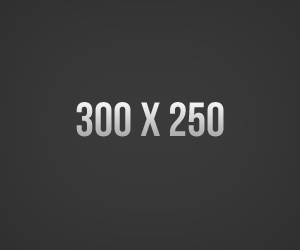Cold cash came in handy. According to Account No. 3,600 of the “Sahara” budget, 16 “gratuity” or “courtesy” payments were made throughout Morocco. Six of the expenditures were “local bribes” in the amount of 65,000 dirham, or $7,559.
Experts in Hollywood accounting could not recall ever seeing a line item in a movie budget described as a bribe.
“It’s a bad choice of words in a document, but it’s a perfectly normal and cost-efficient way of getting a film made in a place like Morocco,” said David A. Davis of FMV Opinions Inc., a Century City financial advisory firm.
The final budget shows that “local bribes” were handed out in remote locations such as Ouirgane in the Atlas Mountains, Merzouga and Rissani. One payment was made to expedite the removal of palm trees from an old French fort called Ouled Zahra, said a person close to the production who requested anonymity.
Other items include $23,250 for “Political/Mayoral support” in Erfoud and $40,688 “to halt river improvement project” in Azemmour. The latter payment was made to delay construction of a government sewage system that would have interrupted filming.
Putnam, Anschutz’s lawyer, said the “local bribes” reflected line items that were budgeted but not actually spent. He said the payments on location in Morocco were reviewed after “Sahara” executives were contacted by The Times.
“The review of all of the ledgers failed to show a single expenditure that wasn’t completely legitimate,” Putnam said.
The Foreign Corrupt Practices Act prohibits U.S. companies from paying any foreign official to secure an “improper advantage” or influence a decision. The act permits small “grease” or facilitation payments for routine services such as the provision of visas, licenses and permits.
The “local bribes” probably would fall under the “grease” exemption because of the routine nature of the payments, said Alexandra Wrage, president of TRACE, an anti-bribery business association in Annapolis, Md.
But the political payment and the fee to delay the sewage project were more troubling, Wrage said. “If they paid a government official, that sounds like buying a business advantage, which is a violation of U.S. law.”
Despite efforts to contain expenses by filming abroad, “Sahara’s” production costs quickly soared from an initial budget of $80 million to more than $100 million largely because of myriad problems locking in a script.
Anschutz said in a deposition that he never set a limit on production costs but became “concerned” as they climbed to $160 million.
“What I wanted to do is make a good film,” he said, adding: “At the end, we spent, in my view, too much money.”
(BEGIN TEXT OF INFOBOX)
When commercial interests and artistic integrity clash
MOVIE executives routinely refuse to talk about their agreements to insert consumer products into films in exchange for hefty fees from advertisers, although they insist that commercial interests never take priority over artistic integrity.
But with “Sahara,” some creative decisions apparently took promotional considerations into account. For example, producer Karen Baldwin demanded script changes to accommodate DaimlerChrysler because the German-American carmaker negotiated to have its Jeep trucks featured in the film. “You can’t have the truck get almost stuck,” Baldwin wrote in a March 2004 e-mail to “Sahara” executives. “I would bet that Jeep will have a heart attack when they see that. They want to show how well the Jeep handles and responds — not that it will get stuck in a tough situation.”
Four months earlier, when director Breck Eisner expressed concern during development of the film about problems with another sequence involving a four-wheel-drive truck, Baldwin wrote in a memo, “Can’t cut it. Jeep to pay 3 million.”
The automaker entered into a partnership with the film’s distributor, Paramount Pictures, for promotional tie-ins and an advertising campaign featuring its Jeep Wrangler Unlimited.
Eisner also suggested eliminating a bar scene featuring tequila because “it doesn’t really work anymore.” Baldwin again balked: “Need the tequila and beer scenes at some point as it means a lot of dollars (2 million from Souza and 3 from Heineken).”
The bar scenes eventually were cut for creative reasons, according to a person close to the production who spoke on the condition of anonymity. This person said that several companies backed out of product placement commitments in 2004 after “Sahara” novelist Clive Cussler filed a lawsuit against the production company seeking to stop the movie from appearing in theaters.
(BEGIN TEXT OF INFOBOX)
Spending freely to give the thrill of a chase — on water
A complex boat chase in “Sahara” features Matthew McConaughey doing his best James Bond impression. He performs daredevil maneuvers, dodges machine gun bullets and leaps out of a fast-moving craft seconds before it erupts in a fiery explosion.



Leave a Reply